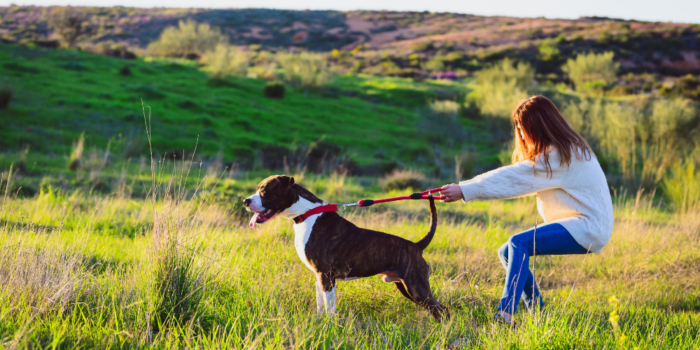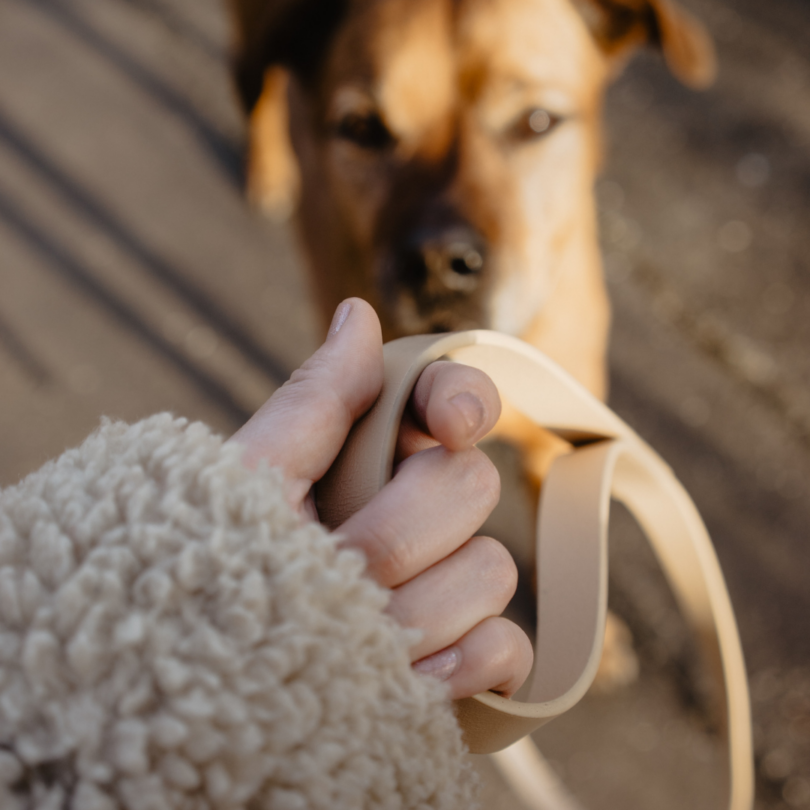In the first episode of season two of the Paws & Reward Podcast, Juliana DeWillems and I explore our relationship to control as pet parents. If you’re like many pet parents, you may call trainers and behavior consultants looking for help with controlling your dog. While this makes total sense, we want to offer a new perspective on the podcast today.
We have a biological need to feel safe, which can contradict our other biological need for connection.
Some behaviors we engage in to feel safe include making up stories to predict outcomes and controlling the behavior of others. This keeps us stuck in behavior loops that do not support the intimacy we long for. When we practice observing, accepting and shifting these patterns of control with our dogs, all of our relationships have the possibility of including more connection.
If you’re ready to move beyond controlling your dog and focus on connecting instead, then this is the episode for you.
But first, what is control?
Society’s definition of control is the ability to stop, change, or get a behavior quickly (or instantly) despite distractions or other environmental factors.
Most people want control for a variety of reasons. You may be reinforced to believe that controlling your dog (and others) and situations can lead to increased safety, confidence, and predictability.
If a pet parent wants to feel in control, it might also be a way for them to avoid feeling uncomfortable emotions such as shame, embarrassment, frustration, for example. There is also a lot of pressure from our society for our dogs to “look or be in control” so as not to disrupt the community.
But, what does controlling your dog really mean? A living being with thoughts, emotions, and instincts? Expecting our dogs to be perfectly controlled in every situation is unrealistic. Letting go of these expectations and allowing our dogs to behave in more natural ways can be freeing for both you and your dog.
How does the interest in controlling your dog get in the way of training and your relationship?
When training, we might not notice when our dog achieves smaller successes. These smaller successes are often the stepping stones to learning the behavior we want, but without reward or acknowledgement (or if accidentally punished), we can harm the trust and bond built between us.
When you’re only focused on controlling your dog, it’s easy to forget to take into account the dog’s natural reactions, instincts, and needs and instead impose your own expectations onto the dog and the situation.
As for the relational aspect, pushing for control can add tension and frustration on both sides of the leash. If we think about our human relationships, do we ever gain anything positive by trying to control the other person and their choices? It’s not exactly the best path to human behavior change! The same can be applied to the bond we have with our dogs.

What is the opposite of controlling your dog?
The opposite of control is flexibility. Allowing our dogs to practice all types of behaviors is not the goal, but rather for us to be able to give grace when necessary and to see when our dogs need help. Whether that’s by removing them from the situation or saying no to an approaching stranger. We can be our dog’s advocate and help them by showing more flexibility in the moment.
How can you accomplish your goals without controlling your dog?
Control is an illusion. Here is what you can influence:
- Teach your dog what you want him to do in safe, controlled environments
- Avoid situations that will cause your dog to react poorly
- Choose and arrange the environment for success
- Have the right reinforcement for your dogs
- Manage your expectations so that when things do not go as planned, you can manage your reaction by seeing it as an opportunity and learning from it
“Are you ready to move on from trying to control your dog?”
Explore these resources to learn more about positive dog training and ways to connect with your dog.
- Connect with Juliana at JW Dog Training and Behavior
- Explore Paws & Reward’s Six Connection Principles
- Learn about our online program, The Connection Summit

